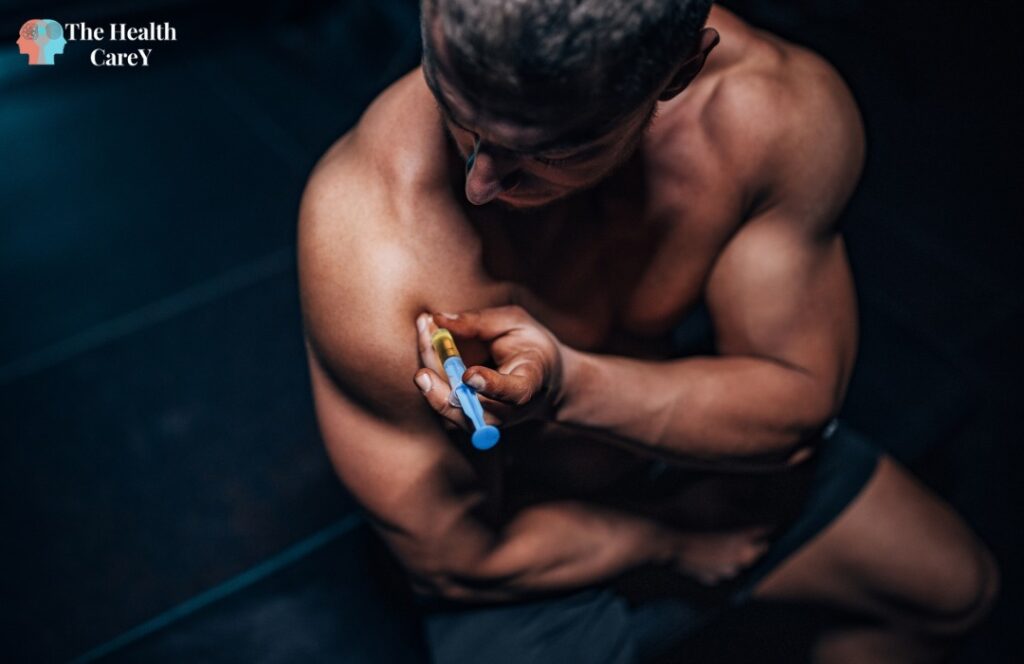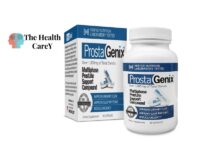If you’ve ever taken steroids to treat a medical condition, you may have wondered how long it takes for your immune system to recover. Steroids can be a powerful tool for managing inflammation and other symptoms, but they can also have side effects that affect your body’s ability to fight off infections.
In this article, we’ll explore the question of how long the immune system is compromised after steroid use and what factors can influence the duration of this effect.
The duration of immune system compromise after steroid use can vary depending on several factors, including the type and dose of steroid, the length of treatment, and the individual’s overall health. For some people, the immune system may recover quickly after stopping steroid therapy, while for others, it may take weeks or even months.
In some cases, long-term steroid use can have more serious effects on immunity, including an increased risk of infections and other health problems. In the following sections, we’ll take a closer look at these factors and what you can do to manage your immune health after steroid therapy.
Key Takeaways
- The duration of immune system compromise after steroid use can vary depending on several factors.
- Long-term steroid use can have more serious effects on immunity, including an increased risk of infections and other health problems.
- There are steps you can take to manage your immune health after steroid therapy, including staying up-to-date on vaccinations and avoiding exposure to infectious diseases.
How Long Is Immune System Compromised After Steroids?
When you take steroids, whether it’s to treat a medical condition or to enhance athletic performance, your immune system can become compromised. Steroids are known to suppress the immune system, which can leave you vulnerable to infections and illnesses.
The length of time that your immune system is compromised after taking steroids can vary depending on several factors, including the type and dosage of the steroid, the duration of use, and your overall health.
In general, it’s believed that the immune system can remain compromised for up to several weeks after you stop taking steroids. However, this can vary from person to person, and some individuals may experience longer-lasting effects.
It’s important to note that the immune system can also be compromised during steroid use, not just after. This is why it’s important to take precautions to protect yourself from infections and illnesses while taking steroids, such as washing your hands frequently and avoiding contact with sick individuals.
If you’re concerned about the effects of steroids on your immune system, it’s important to talk to your doctor. They can provide you with information on the specific risks and side effects associated with the type of steroid you’re taking, as well as guidance on how to protect yourself from infections and illnesses.
Duration of Immune System Compromise
After taking steroids, your immune system can be compromised for varying lengths of time depending on the type and duration of steroid use. In general, the immune system can be suppressed for up to several weeks after discontinuing steroid use.
Short-term use of steroids, such as a 5-day course of oral prednisone, may only cause immune suppression for a few days after the last dose. However, longer courses of steroids, such as those used to treat autoimmune diseases, can cause immune suppression for several weeks after the last dose.
The duration of immune suppression also depends on the dose of steroids used. Higher doses of steroids can cause more significant immune suppression and, therefore, a longer duration of compromised immune function.
It is important to note that while your immune system may be compromised after steroid use, it does not mean that you will necessarily get sick. Your body still has some immune function, and you can take steps to support your immune system, such as getting enough rest, eating a healthy diet, and avoiding exposure to illness.
In summary, the duration of immune system compromise after steroid use can vary depending on the type, duration, and dose of steroids used. Short-term use may only cause immune suppression for a few days, while longer courses of high-dose steroids can cause immune suppression for several weeks.

Factors Influencing Immune System Recovery
The length of time it takes for your immune system to recover after taking steroids can vary depending on several factors. Here are some of the factors that can influence your immune system recovery:
Steroid Type and Dosage
The type and dosage of steroids you take can have a significant impact on how long it takes for your immune system to recover. High doses of steroids, as well as long-term use, can suppress your immune system for an extended period, making it take longer to recover.
Duration of Steroid Use
The duration of steroid use is another critical factor that can influence immune system recovery. Short-term use of steroids may not have a significant impact on your immune system, while long-term use can cause lasting damage.
Age and Overall Health
Your age and overall health can also play a role in how long it takes for your immune system to recover. Older adults and those with weakened immune systems may take longer to recover than younger, healthier individuals.
Underlying Medical Conditions
Underlying medical conditions can also affect immune system recovery. If you have an underlying medical condition that causes immune system suppression, it may take longer for your immune system to recover after taking steroids.
Lifestyle Factors
Lifestyle factors, such as diet, exercise, and stress levels, can also influence immune system recovery. A healthy lifestyle can help support immune system recovery and promote overall health.
In conclusion, several factors can influence how long it takes for your immune system to recover after taking steroids. It is essential to work closely with your healthcare provider to monitor your immune system and take steps to support its recovery.
Effects of Long-Term Steroid Use on Immunity
Long-term use of steroids can have a significant impact on the immune system. Steroids can suppress the immune system, leaving you more vulnerable to infections and illnesses. Here are some of the effects of long-term steroid use on immunity:
- Increased risk of infections: Long-term steroid use can increase your risk of developing infections, including bacterial, viral, and fungal infections. This is because steroids suppress the immune system, making it harder for your body to fight off infections.
- Delayed wound healing: Steroids can also delay wound healing, which can increase your risk of infection. This is because steroids can reduce the production of white blood cells, which are important for fighting off infections and promoting healing.
- Increased risk of cancer: Long-term steroid use has also been linked to an increased risk of certain types of cancer, including lymphoma and leukemia. This is because steroids can suppress the immune system, making it harder for your body to fight off cancer cells.
- Increased risk of autoimmune diseases: Steroids can also increase your risk of developing autoimmune diseases, such as lupus and rheumatoid arthritis. This is because steroids can alter the way the immune system functions, leading to an overactive immune response.
It is important to note that not everyone who takes steroids will experience these effects on their immune system. The severity of the effects can also vary depending on the dose and duration of steroid use. If you are taking steroids for a long period, it is important to be aware of the potential effects on your immune system and to talk to your doctor about ways to minimize these risks.

Managing Immune Health After Steroid Therapy
After completing steroid therapy, it is important to take measures to manage your immune health. Steroids can suppress the immune system, leaving you vulnerable to infections and illnesses. Here are a few things you can do to support your immune system post-steroid therapy:
1. Get Adequate Sleep
Sleep is essential for a healthy immune system. Aim for 7-9 hours of sleep each night, and try to establish a consistent sleep schedule. Avoid caffeine and other stimulants before bedtime, and create a relaxing sleep environment.
2. Eat a Balanced Diet
A balanced diet is key to maintaining a healthy immune system. Focus on whole, nutrient-dense foods, and limit processed and sugary foods. Include plenty of fruits and vegetables, lean proteins, and healthy fats in your diet.
3. Exercise Regularly
Exercise can help boost your immune system by reducing inflammation and improving circulation. Aim for at least 30 minutes of moderate exercise most days of the week. Consult with your doctor before starting any new exercise program.
4. Practice Good Hygiene
Good hygiene is important to prevent the spread of infections. Wash your hands frequently, avoid touching your face, and cover your mouth and nose when coughing or sneezing.
5. Stay Up-to-Date on Vaccinations
Vaccinations can help protect you from infections and illnesses. Talk to your doctor about which vaccinations are recommended for you, and make sure you are up-to-date on your immunizations.
By following these tips, you can help support your immune system and reduce your risk of infections and illnesses after completing steroid therapy.
Conclusion
In conclusion, the use of steroids can have a significant impact on your immune system. Studies have shown that the length of time that your immune system remains compromised after taking steroids can vary depending on a number of factors, including the type of steroid used, the dosage, and the duration of treatment.
It is important to note that while steroids may be effective in treating certain medical conditions, they can also have negative side effects, including a weakened immune system. If you are taking steroids, it is important to talk to your doctor about the potential risks and benefits of this treatment.
To help support your immune system while taking steroids, there are a number of steps you can take, including:
- Eating a healthy and balanced diet
- Getting regular exercise
- Getting enough sleep
- Avoiding exposure to germs and infections
- Washing your hands regularly
By taking these steps, you can help support your immune system and reduce the risk of infections and other complications while taking steroids.
Frequently Asked Questions
How can I boost my immune system after taking steroids?
After taking steroids, it is important to focus on a healthy lifestyle to help boost your immune system. This includes eating a balanced diet, getting enough sleep, exercising regularly, and managing stress. You may also want to consider taking immune-boosting supplements, such as vitamin C or probiotics, but be sure to talk to your doctor before starting any new supplements.
What are the effects of long-term prednisone use on the immune system?
Long-term use of prednisone can suppress the immune system, making it more difficult for your body to fight off infections. This can increase your risk of developing infections and other health problems. It is important to work closely with your doctor to monitor your immune system function and adjust your treatment plan as needed.
Does short-term prednisone use weaken the immune system?
Short-term use of prednisone is less likely to weaken the immune system than long-term use. However, even short-term use can have an impact on your immune system, so it is important to follow your doctor’s instructions and take the medication only as prescribed.
How long does it take for the immune system to recover after steroid use?
The length of time it takes for the immune system to recover after steroid use can vary depending on the individual and the type of steroid used. In general, it can take several weeks to several months for the immune system to fully recover. Your doctor can monitor your immune system function and guide how to support your recovery.
What are the risks of immune system suppression from dexamethasone?
Dexamethasone is a powerful steroid that can suppress the immune system, increasing the risk of infections and other health problems. It is important to work closely with your doctor to monitor your immune system function and adjust your treatment plan as needed.
Can steroids permanently damage the immune system?
While steroids can have a significant impact on the immune system, there is no evidence to suggest that they can permanently damage it. However, long-term use of steroids can increase the risk of infections and other health problems, so it is important to work closely with your doctor to monitor your immune system function and adjust your treatment plan as needed.




















